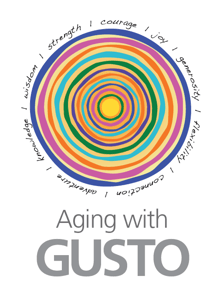My Journey Toward Consciousness: Grappling with Ageism
Julie Roles, Program Director, Vital Aging Network | Aug 16, 2017
“That’s not me,” I casually said to my dinner companions who were a few years older than me. We were talking about being “older.” I had worked in the aging field for several years but clearly saw older as “other” to me.
Seeing older people as other than ourselves is a key barrier to eliminating ageism. We age along a continuum through the full life cycle. At different ages, we may have different developmental tasks but they are all of one piece. If we do not see ourselves on the same continuum as someone who is older, we are likely to see him or her as other. That gives us license to discount, separate from, pity and even disdain.
What is ageism and how does it harm?
I cannot pinpoint exactly when and how I acknowledged I was a part of that older group, and that it was not only okay but also a good thing. A number of experiences helped me moved along that path.
It started in a conversation with Donald Gault, then a director with Ramsey County Public Health. Donald suggested that how older adults see themselves is an important foundation for health and well-being. His comment led to discussions with then VAN board member, Nancy Eustis, professor emerita with the Humphrey School of Public Affairs and a nationally know expert on aging. She directed me to research about aging, perceptions about aging and ageism.
- I learned about how negative stereotypes of aging turn into negative self-perceptions as we age.
- These internalized thoughts and ideas have a measurable negative impact on cognitive ability, responses to stress, self-esteem and other damaging effects.
- Research shows that negative self-perceptions can, on average, mean seven and a half fewer years of life.
- Negative stereotypes of aging are perpetuated through pervasive and persistent ageism in our society.
GREAT NEWS!
When we replace stereotypes with more accurate and nuanced views of aging we see that aging brings some welcomed benefits, both for individuals and for our society. Research has found that, in general, older people are happier than younger people. They are better ability to deal with conflict and have increased social skills. And they have better decision-making abilities, drawing on their lifetime of experiences.
I FEARED AGING
As I examined what I thought about my own aging, the central image was of myself as very old, disabled, sad, and lonely. I realized that I was fearful about aging. But that fear was based on a very narrow view of what it means to age. Even if at some point I must deal with disabilities (70 percent of people 65+ do at some point in their lives), the situation isn’t necessarily permanent nor does it need to define my life. Sad and lonely are related to choices I make. I have worked hard to compose my life. There is no reason to imagine that I won't do the same as I continue to age.
EXPERT ADVICE
In her book, This Chair Rocks: A Manifesto against Ageism, Ashton Applewhite references the Mexican saying, “the bull looks different when you’re in the ring.” I take a sense of comfort in those words. I don't know what I will face as I age, but I feel confident that I will adjust to what is needed. Now, when I think of myself as old there is much less fear and more of a sense of curiosity and awe.
For whatever progress I have made, I am not immune to ageist thoughts and actions. I need to remind myself to look into the eyes of older people and to see them as the unique individuals they are, to not make assumptions that someone cannot do something because of the grayness of their hair and to appreciate each new manifestation of my own aging life.
Applewhite reminds us to “look for ways in which you are ageist instead of looking for evidence that you aren’t.” Ageism is deeply embedded in our lives and it is our responsibility not to be complicit in carrying it forward.
I CHANGED
The real change for me came through thinking about aging, talking with others and being exposed to more positive views. My journey is not unlike many others and it is what we hope to inspire in the Vital Aging Network’s Aging with Gusto discussions. 
As my consciousness has risen, I have become only more adamant about the importance of this work. We can do this. We can change attitudes about aging, and we must. Our health and well-being depend upon it.
SHATTER STEREOTYPES WITH US!
The Vital Aging Network is pleased to collaborate with Walker Methodist to offer Aging with Gusto discussions as part of the Well-Being Wednesday Series at the Walker Methodist Levande Welcome Center in Cambridge on three Wednesday evenings, August 23, 30 and September 6 from 5:00 to 7:30. Each evening includes a free and healthy light supper provided by Walker Methodist.
This is a great opportunity to talk with others, examine your views on aging and grapple with your role in changing our society’s narrative around aging. Learn more about this session or Download a flyer.